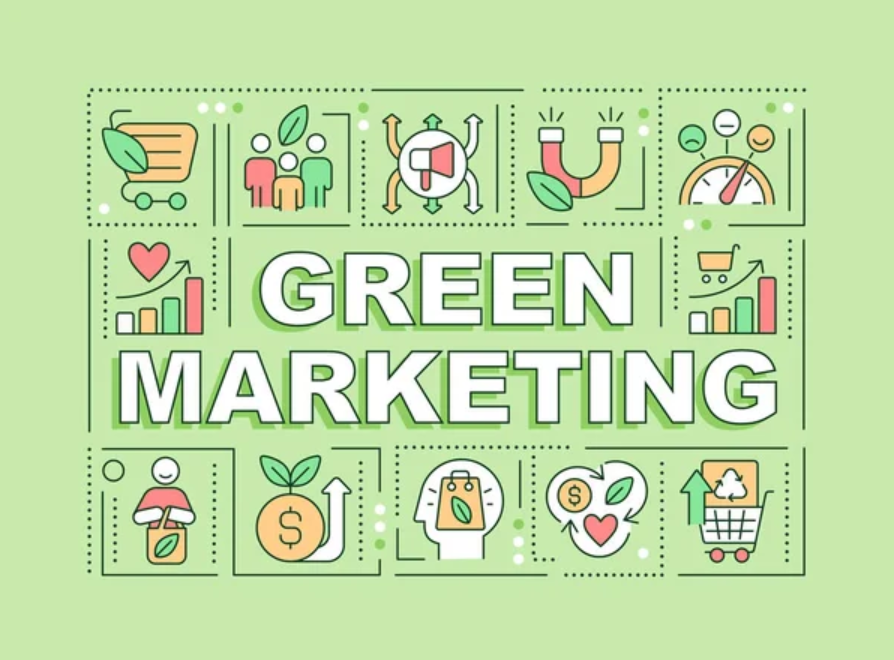
Step into the world of sustainable marketing and discover how brands are taking a proactive approach to environmental responsibility while also driving business growth. In an era of increasing environmental awareness and social consciousness, consumers are demanding more from the brands they support—they want products and services that align with their values and contribute to a healthier planet. Sustainable marketing offers businesses an opportunity to not only meet consumer expectations but also differentiate themselves in the market and drive long-term success. In this guide, we’ll explore the importance of sustainability in marketing and share strategies for brands to lead the way in championing environmental responsibility.
1. Understanding Sustainable Marketing
Sustainable marketing, also known as green marketing or eco-friendly marketing, is a strategy that focuses on promoting products, services, and brand values that are environmentally friendly, socially responsible, and ethically sourced. It involves integrating sustainability principles into all aspects of the marketing mix, from product development and packaging to advertising and communication strategies. Sustainable marketing aims to educate consumers about the environmental impact of their purchasing decisions and empower them to make more sustainable choices.
2. The Importance of Sustainability in Marketing
Sustainability is no longer just a trend—it’s a business imperative. Brands that prioritize sustainability in their marketing efforts can reap several benefits:
- Enhanced Brand Reputation: By demonstrating a commitment to environmental responsibility, brands can build trust and credibility with consumers, leading to a positive brand image and reputation.
- Increased Customer Loyalty: Consumers are more likely to support brands that share their values and contribute to causes they care about. By aligning with sustainability, brands can foster stronger emotional connections and loyalty among customers.
- Competitive Advantage: Sustainability can be a key differentiator in a crowded marketplace, helping brands stand out from competitors and attract environmentally conscious consumers.
- Cost Savings: Adopting sustainable practices can lead to cost savings through efficiencies in energy usage, waste reduction, and resource optimization. Sustainable initiatives such as recycling programs and renewable energy sources can also lower operating costs over time.
3. Strategies for Sustainable Marketing
To integrate sustainability into your marketing efforts effectively, consider the following strategies:
- Product Innovation: Develop sustainable products and services that minimize environmental impact throughout their lifecycle, from sourcing raw materials to disposal. Highlight the eco-friendly features and benefits of your products in your marketing communications.
- Responsible Packaging: Opt for sustainable packaging materials that are recyclable, biodegradable, or made from renewable resources. Reduce packaging waste and encourage recycling by providing clear instructions and incentives for consumers.
- Transparent Communication: Be transparent and authentic in your communication about sustainability efforts, avoiding greenwashing or misleading claims. Provide evidence to support your environmental claims and educate consumers about the positive impact of their purchases.
- Community Engagement: Engage with your community and stakeholders to drive collective action towards sustainability goals. Support local environmental initiatives, participate in clean-up events, and collaborate with like-minded organizations to amplify your impact.
- Continuous Improvement: Continuously evaluate and improve your sustainability practices based on feedback from customers, employees, and stakeholders. Set measurable goals and benchmarks to track progress over time and hold your brand accountable for making meaningful contributions to sustainability.
4. Measuring Impact and Reporting Progress
Measure the impact of your sustainability initiatives using key performance indicators (KPIs) such as carbon footprint, energy consumption, waste diversion rates, and customer engagement metrics. Report on your progress transparently through sustainability reports, annual disclosures, and public communications to demonstrate accountability and build trust with stakeholders.
Conclusion
Sustainable marketing offers brands an opportunity to not only drive positive social and environmental change but also build stronger relationships with customers and stakeholders. By integrating sustainability into all aspects of the marketing mix, brands can lead the way in championing environmental responsibility and inspire others to follow suit. Ready to make a difference? Start incorporating sustainability into your marketing efforts today and join the movement towards a greener, more sustainable future.

Leave a Reply